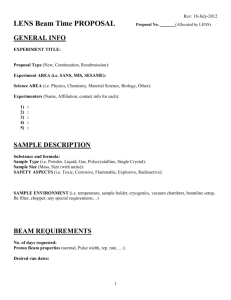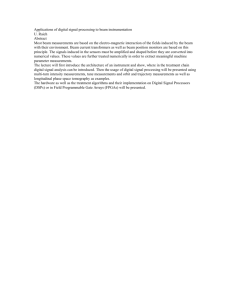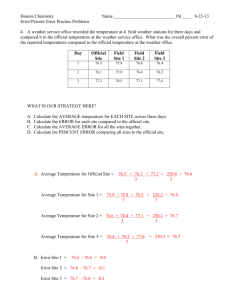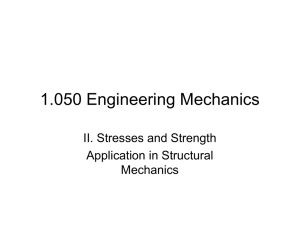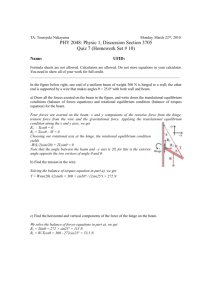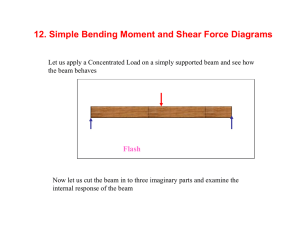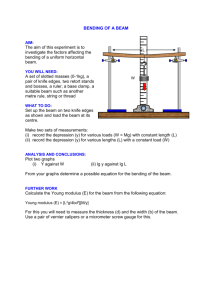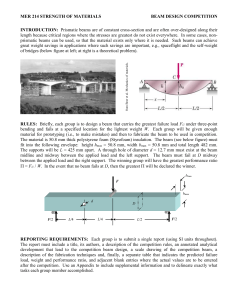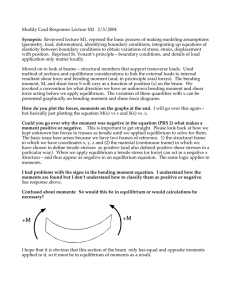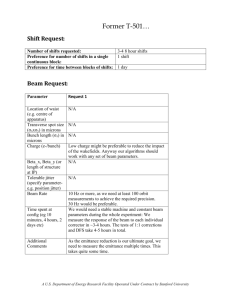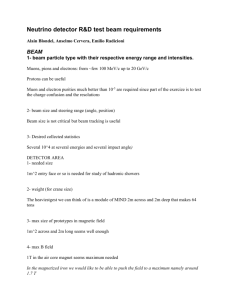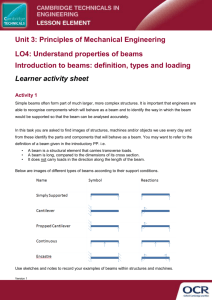WS10_Internal Loading
advertisement
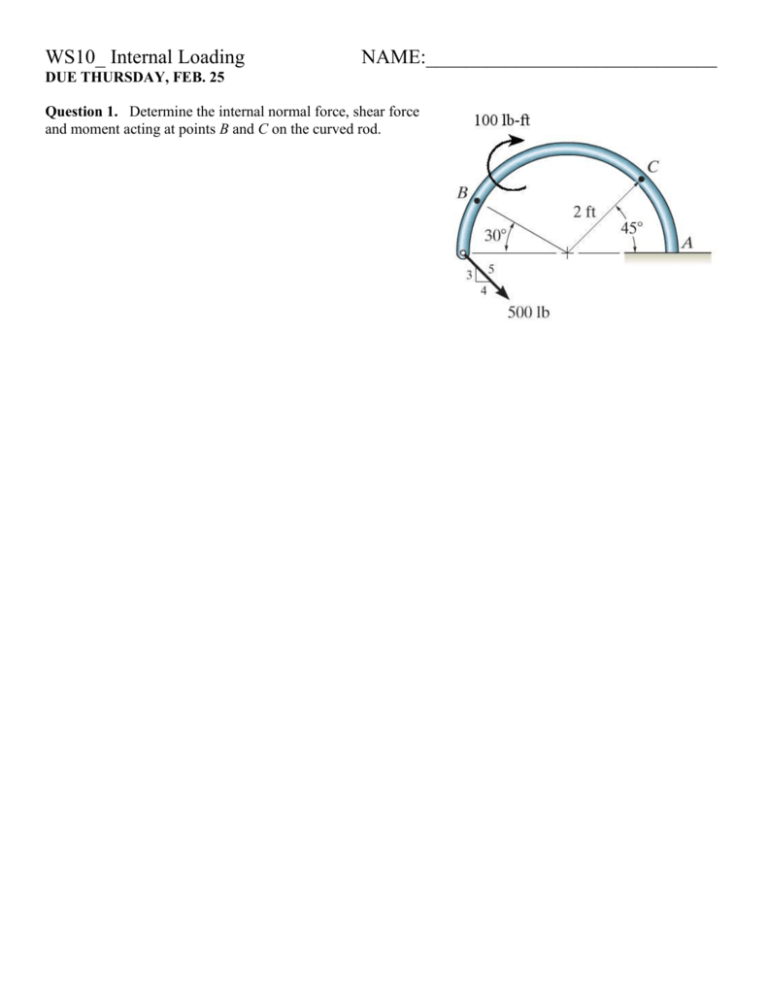
WS10_ Internal Loading NAME:_____________________________ DUE THURSDAY, FEB. 25 Question 1. Determine the internal normal force, shear force and moment acting at points B and C on the curved rod. Question 2. Determine the internal normal force, shear force and moment at points C and D in the simply supported beam. Point C is located just to the right of the 1500-lb·ft couple moment. (1) Establish and DRAW your coordinate system on the beam with the origin (x = 0) at point A. (2) Draw the free body diagram below for the LEFT section of the beam to evaluate point D. (3) Write the equilibrium equations for the free body diagram above and solve. Be sure to sum moments at the cut. (4) Draw the free body diagram below for the LEFT section of the beam to evaluate point C. (You will include the couple moment in your free body diagram.) (5) Write the equilibrium equations for the free body diagram above and solve. Be sure to sum moments at the cut. Question 3. Determine the internal shear force and moment as a function of x for (0 ft ≤ x < 6 ft). Establish x = 0 at the left end of the beam (point A). (You will need to solve for the support reactions.) (1) Into how many distinct regions should this beam be divided? (2) List the range of x for each distinct region. For example (10 m ≤ x < 15 m) (3) Draw the free body diagram for (0 ft ≤ x < 6 ft). Be sure to show ‘x’ as the ‘length’ of the beam section. (4) Write the equilibrium equations for the free body diagram above and solve. Be sure to sum moments at the cut. Question 4. Determine the internal shear force and moment as a function of x for (5 ft ≤ x < 7 ft) and for (7 ft ≤ x < 9 ft). Establish x = 0 at the left end of the beam (point A). (You will need to solve for the support reactions.) (1) Into how many distinct regions should this beam be divided? (2) List the range of x for each distinct region. For example (10 m ≤ x < 15 m) (3) Draw the free body diagram for (5 ft ≤ x < 7 ft). Be sure to show ‘x’ as the ‘length’ of the beam section. (4) Write the equilibrium equations for the free body diagram above and solve. Be sure to sum moments at the cut. (5) Draw the free body diagram for (7 ft ≤ x < 9 ft). Be sure to show ‘x’ as the ‘length’ of the beam section. (6) Write the equilibrium equations for the free body diagram above and solve. Be sure to sum moments at the cut.
